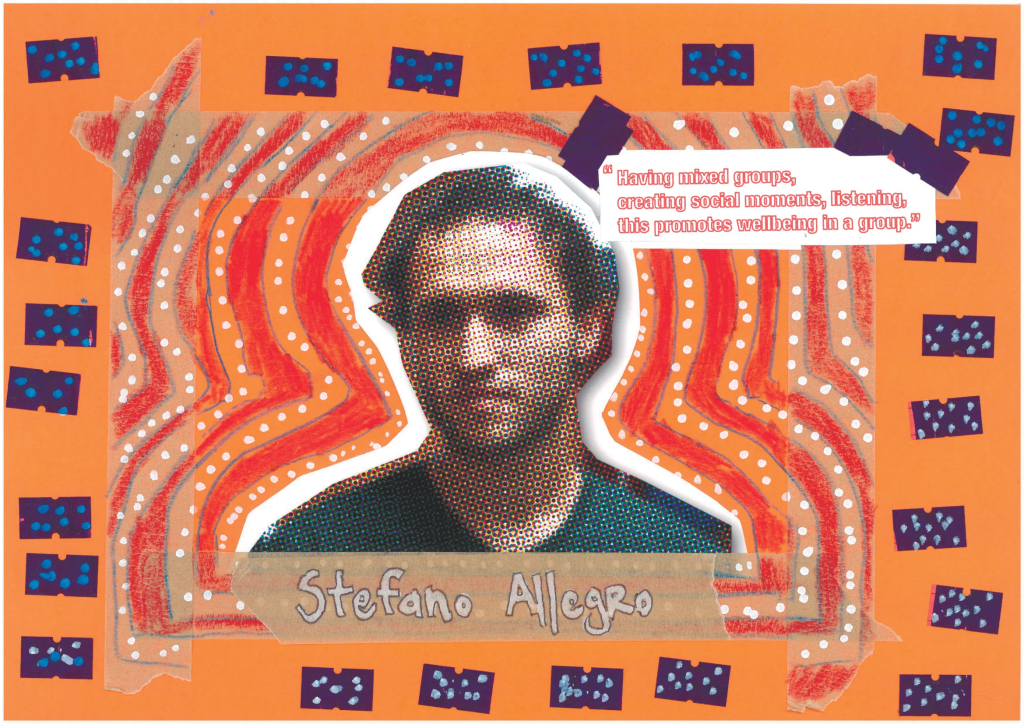Interview with the coach of Quadrato Meticcio Women’s Football Team
28 December 2024

This interview comes from the anti-racist fanzine ‘A Sporting Chance’, created by the ERRC in 2024 to highlight the experiences of Roma, Sinti, & Travellers fighting racism through sport as part of the EU-funded Moving On project.
We caught up with Head Coach Stefano Allegro to talk about access to sport in vulnerable communities and how he encourages a multicultural community to play football together.
Tell us a bit about yourself, the association you represent, and how you are involved there.
My name’s Stefano, coach of the women's team of the Quadrato Meticcio sports association in Padua that uses football as a tool of social inclusion for different people. We are in a neighbourhood that is characterised by its multiculturalism, and for being a socio-economically struggling population. We have very low membership fees in order to facilitate access, or sometimes membership is even free actually. In addition to sports, the association promotes after-school activities for neighbourhood children, we do food distribution on Tuesday mornings, and we organise festivals and sports and cultural events for the community.
What kind of obstacles do players in your community face in accessing services, including sports?
here are integration problems, racism and segregation certainly towards some communities. Then there are the structural problems of the state not working on its social integration policies. These communities are also economically disadvantaged and therefore have difficulty accessing services. Think about sports, it becomes unimportant if first there are more serious problems such as finding housing, work etc.
…If a community lives on the margins and is poor, then you struggle to access sports and cultural services. For me the main obstacle is economic which leads to housing instability, job instability, and also you struggle even in forming relationships. You are labelled as ‘the poor’. For many, the poor are scary and this triggers forms of racism.
Do you think there are specific obstacles for Roma and Sinti compared to other racialised and marginalised communities, such as refugees or LGBTQ+ people?
There are higher difficulties with this community. It is a more marginalised and discriminated against community. I think of the camps that are close to the bypass roads and far from the city centre, from public services.
The perception I find is that they also think in terms of ‘us and them’, but that is triggered by a vicious circle. Firstly, they are excluded, they are victims, and so they label themselves with an ‘us’ to defend themselves and because of this there is also a struggle to include them. So, there are two aspects, exclusion and self-exclusion, these things can feed off each other.
What has your experience been like trying to encourage Roma and Sinti kids to play football?
I had experiences with specifically with kids from the Sinti culture, four boys were a part of the club for a while, all different ages. When they were on the pitch playing, for them playing well was the only priority and they were included within the group. The boys in this club are also used to playing with each other and all come from different cultures.
However, it is important to decide the purpose of sport. Sport is not neutral, and it is not all good. You also must create a healthy and inclusive environment. Having mixed groups, creating social moments, listening, this promotes wellbeing in a group. It is not easy however for them because even saying that they are Sinti is not easy, especially when they are the only one playing within a neighbourhood, it’s not easy. The other kids come from Morocco, Nigeria, Tunisia and so on...they have so many from each culture, in the case of this Sinti family the difficulty is greater and so even for the kids to feel accepted it is more difficult.
What about access for Romani or Sinti women and girls?
In my personal experience, I have never found girls from this community in my club playing football. In my small personal experience, I generally see that women and girls are relegated to the family sphere, the sisters of the boys who play soccer do not play sports. They often take care of the house and their brothers. So, their oppression is twofold, but then maybe it is also football which is a sport already considered ‘for men’ in Italian society so maybe it is also this. Perhaps if the Quadrato Meticcio offered another sport then the Sinti women in the community would be interested to come closer.
Finally, do you have any suggestions for improving social inclusion and the participation in sports for Roma and Sinti in Italy?
Certainly, sporting activity is important to create opportunities to meet, provide a fun time for kids, but there needs to be a structural change. Several areas need to be changed to improve the inclusion of this community. However, action needs to be taken mainly at the economic level because then we can improve the situation at the cultural level as well.




